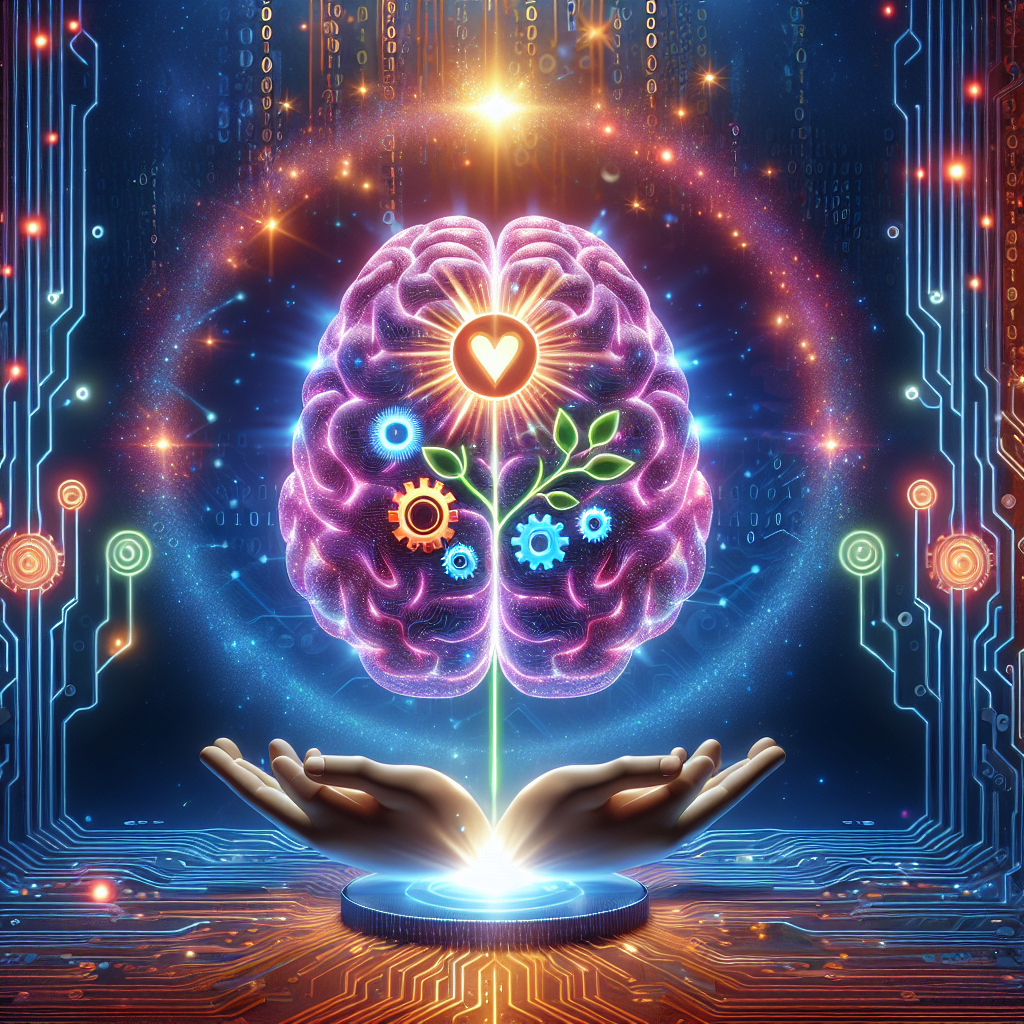In recent years, there has been a growing recognition of the importance of mental health and the need for better support services for those struggling with mental health issues. One area that has shown great promise in this regard is the use of artificial intelligence (AI) to enhance mental health support services. AI has the potential to revolutionize the way mental health support is delivered, making it more accessible, personalized, and effective. In this article, we will explore the ways in which AI can be used to enhance mental health support services and the benefits it can bring to those in need.
AI in Mental Health Support
AI has the potential to transform mental health support services in a number of ways. One of the key benefits of using AI in this context is its ability to analyze large amounts of data quickly and efficiently. This can help mental health professionals to better understand the needs of their patients and tailor their treatment plans accordingly.
For example, AI can be used to analyze data from electronic health records, wearable devices, and other sources to identify patterns and trends in a patient’s mental health. This can help mental health professionals to identify early warning signs of mental health issues and intervene before they escalate.
AI can also be used to deliver personalized mental health support to patients. By analyzing a patient’s data and preferences, AI algorithms can provide tailored recommendations for treatment options, coping strategies, and self-care activities. This can help patients to feel more supported and engaged in their treatment, leading to better outcomes.
Another way in which AI can enhance mental health support services is through the use of chatbots and virtual assistants. These tools can provide round-the-clock support to patients, answering questions, providing information, and offering emotional support. Chatbots and virtual assistants can also help to reduce the stigma associated with mental health issues, as patients may feel more comfortable opening up to a non-judgmental AI than to a human professional.
Benefits of Using AI in Mental Health Support
There are a number of benefits to using AI in mental health support services. Some of the key advantages include:
1. Accessibility: AI can help to make mental health support services more accessible to those who may not have access to traditional services. For example, people in rural areas or low-income communities may not have easy access to mental health professionals, but they can still benefit from AI-powered support services.
2. Personalization: AI can deliver personalized mental health support to patients, taking into account their individual needs, preferences, and goals. This can help to improve patient engagement and satisfaction with their treatment.
3. Efficiency: AI can analyze large amounts of data quickly and efficiently, helping mental health professionals to make more informed decisions about their patients’ care. This can lead to faster diagnosis and treatment, as well as better outcomes for patients.
4. Stigma Reduction: AI-powered support services can help to reduce the stigma associated with mental health issues by providing a non-judgmental and confidential platform for patients to seek help.
FAQs
1. How secure is my data when using AI-powered mental health support services?
AI-powered mental health support services take data privacy and security very seriously. They use encryption and other security measures to protect your data and ensure that it is not shared with unauthorized parties. However, it is always a good idea to read the privacy policy of any service you are using to understand how your data will be handled.
2. Can AI really provide effective mental health support?
While AI is not a replacement for human mental health professionals, it can be a valuable tool in enhancing mental health support services. AI can analyze large amounts of data quickly and efficiently, helping professionals to make more informed decisions about their patients’ care. It can also provide personalized recommendations and support to patients, leading to better outcomes.
3. Will I still be able to talk to a human professional when using AI-powered mental health support services?
AI-powered mental health support services are designed to complement, not replace, human professionals. While AI can provide valuable support and information, it is important to have access to human professionals for more complex issues and emotional support. Many AI-powered services offer the option to speak to a human professional if needed.
4. How do I know if AI-powered mental health support services are right for me?
If you are struggling with mental health issues and are looking for support, AI-powered mental health support services can be a valuable resource. They offer personalized recommendations, round-the-clock support, and access to a wide range of resources and information. However, it is important to consider your individual needs and preferences when choosing a support service. If you have any concerns or questions, it is always a good idea to speak to a mental health professional for guidance.
In conclusion, AI has the potential to revolutionize the way mental health support services are delivered, making them more accessible, personalized, and effective. By analyzing data, providing personalized recommendations, and offering round-the-clock support, AI-powered services can help to improve outcomes for those struggling with mental health issues. If you are in need of support, consider exploring AI-powered mental health services as a valuable resource in your journey towards better mental health.

